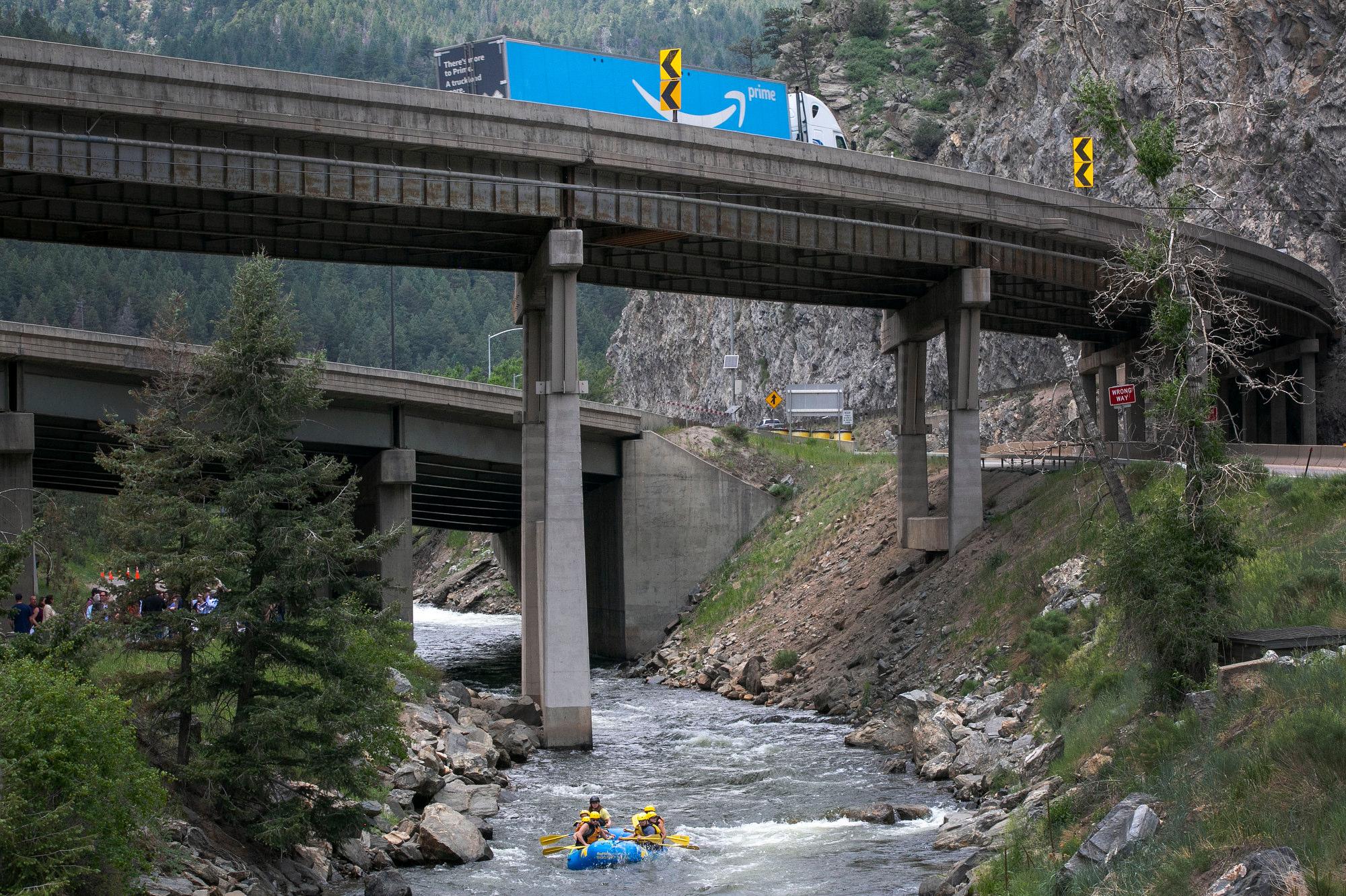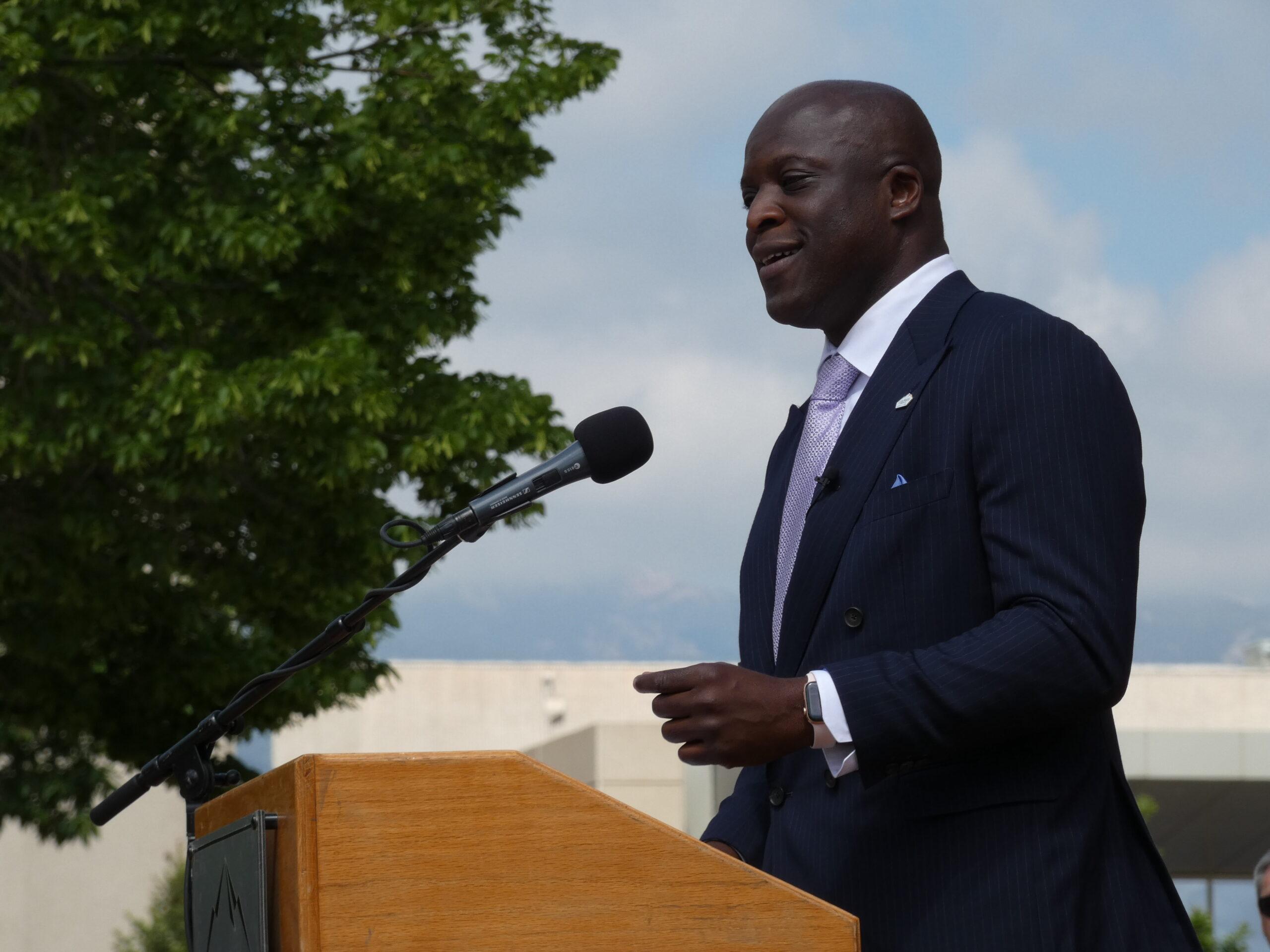
The federal infrastructure bill Congress passed last week will send an estimated $700 million to $850 million in new money to Colorado for transportation projects over the next five years, the state’s top transportation official said Monday.
That infusion will be used to speed up completion of the state’s 10-year plan of more than 400 projects, including thousands of miles of rural road repaving and the repair and expansion of decaying and congesting highways like Interstate 70 at Floyd Hill and Interstate 270 in Commerce City.
“This probably pulls it up a few years,” state Department of Transportation Executive Director Shoshana Lew said of the new federal money’s expected impact on her department’s to-do list. “We expect that that will start a conversation about being able to pull other projects in ... to keep the pipeline flush.”
Another estimated $215 million in new federal money would go toward public transportation across the state.
Lew is the first CDOT leader in recent memory to be faced with the enviable task of finding new projects to use up available dollars. For decades, Colorado leaders have lamented the lack of investment in the state’s transportation systems. But the new federal money and a $5 billion transportation funding bill the state legislature passed earlier this year have the state and local governments preparing for a rare funding feast.
The bill also includes tens of billions of dollars for competitive grant programs that would fund major transportation projects, bridges and electric vehicle charging stations. Lew said CDOT has a good chance of landing some of that money because the state’s 2021 transportation bill gives Colorado dollars it can use to attract more federal money. It also included provisions for climate, environmental justice and equity that align with the federal government’s own priorities.
The state bill “put us ahead of the curve,” Lew said.
Environmental groups say it’s too soon to declare the federal infrastructure bill a win for the environment because it allows local and state governments to decide how much of the new money is spent. Transportation is the largest source of greenhouse gas emissions in Colorado, and research shows road expansion projects can encourage more people to drive on them.
“The full climate impact of both bills will depend on our ability to align spending with our environmental and social goals, and prioritize projects that protect the planet, save people money, and improve equity,” Matt Frommer, senior transportation associate at the Boulder-based Southwest Energy Efficiency Project, wrote in an email.
The commission that oversees CDOT will soon vote on a rule that could limit or at least offset climate-warming road expansion projects, which could result in more money being spent on transit, biking and walking infrastructure, Frommer said.
A spokeswoman for the state’s largest transit agency, the Denver metro’s Regional Transportation District, said it’s not yet clear just how much of a bump RTD will see. But the agency is “thrilled” by the bill’s passage, she said.
“Expected funding increases are eligible for capital operating expenses and will greatly assist RTD in reducing the substantial maintenance backlog by providing funding assistance for fleet and operating equipment replacement,” RTD spokeswoman Laurie Huff wrote in an email.
RTD could also seek competitive grants to fund projects like the long-planned bus rapid transit line on East Colfax Avenue, Huff said.
Denver International Airport will also see new money for its ongoing construction projects, including the Great Hall rebuild and the expansion of Pena Boulevard.
"This infusion of funds is much needed and will provide added flexibility for airports like DEN to make much-needed investments to upgrade our aging systems and to expand our capacity, and to support the exponential growth in passenger traffic we are experiencing now and in the future,” airport CEO Phil Washington said in a press release.
Another winner could be the state’s fledgling plans for a new passenger rail line along the Front Range. Amtrak will receive much of the federal bill’s $66 billion for rail, some of which will go to start new routes across the country. Amtrak executives said earlier this year that they’re committed to establishing a new line in Colorado, calling it a “huge opportunity.” That line will cost at least $1.5 billion to build and probably much more.









